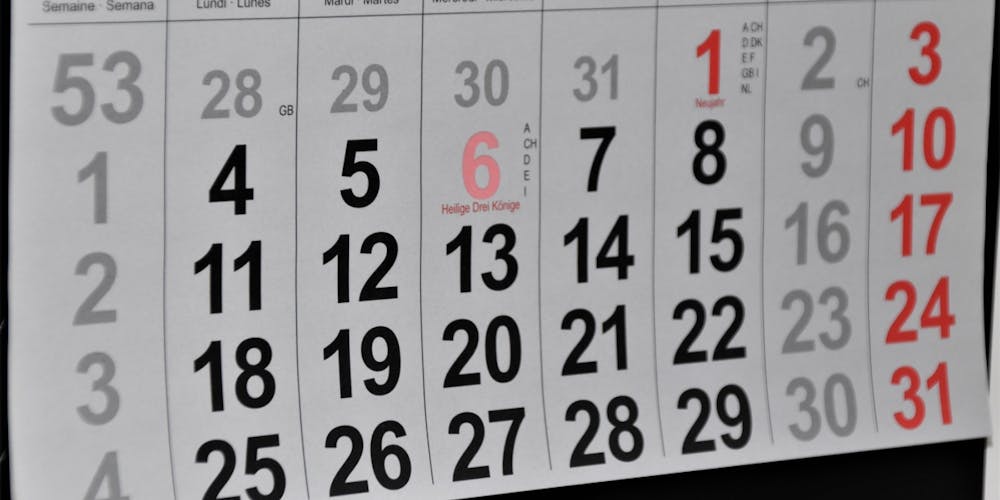tech-advice — Thu Dec 02 2021
Struggling to Manage Your Time Effectively? 7 Tips to Help You Manage Your Time and Get More Done
Post by — Joy Krinbut

Time is our most precious asset. You can lose money and get it back, you can fall ill and become healthy again but once time is gone, it is gone. It cannot be recovered.
One thing we all have in common as humans, we have the same amount of time every single day (24 hours). Some of us waste and make the worst use of our time while others use their time efficiently.
“Don’t start the day until you’ve had it finished”- Jim Rohn. This means that you should plan your day before the day starts.
Planning your day ahead of time is an effective key to time management. It helps you start the day in a purposeful manner and helps you get more done in less time.
In this post, we will look at the 8 time management tips that would help you get more done
1. Set Goals
Setting goals is crucial for planning your day. It means creating a proper target, it helps you not to fall off schedule.
Before deciding your objective it is important to look deep inside and ask yourself if you want to achieve those things.
Knowing your ambition can help you maximise your productivity, help you see the bigger picture and help you achieve as much as possible.
2. Prioritise Your Tasks
Identify your most important task and do it first, you may not have enough time to get everything done at once which is why it’s important to set your priorities right.
You might want to build your audience, write a book or change your career. Make it a priority to make time every day or week to work towards your goal.
The best way to set your priorities right is to divide your tasks into the following categories
- Important and urgent- these are tasks that need to be done right away
- Important but not urgent- these are important tasks that can be done later
- Urgent but not important- these are tasks that need to be done immediately but when completed they do not have a lasting value
- Not important and not urgent- these are tasks you don’t really need to do but might just want to do.
Doing this will give you a better view of your task and would help you decide which task need to be dealt with first. It helps you save the time and energy you would have wasted on an unimportant task.
3. Use a Calendar Not a To-Do List

Recent research shows that 41% of items that people put on their to-do list are never done at all. This is because most of our to-do list is a list of important but not urgent tasks
Your calendar is where you are going to plan and track your time. The calendar is the best place to do this because it is literarily a list of all the hours in the day that you have and how much of it you can use.
For example, how much time you can use to sleep, pursue your career goal, how much time you can give to other people, family and friends.
It is also important to be able to analyse and track every single thing you do on your calendar.
Tracking your time would help you plan your time better, for example, if you used 2 hours of your time the previous day watching the television or following news feeds on Instagram, tracking your time on your calendar can help you decide on reducing the time you spend on Instagram and add it to a much more important task like spending more hours with your kids or doing something much more productive.
4. Stop Procrastinating
One of the popular enemies of time management is procrastination. This is a process of pushing a task that needs your immediate attention to later or another day.
For example, you need to include exercise in your daily tasks. We all know exercise is vital to a healthy life and should be a daily priority. So you decide to include it in your daily task and you set an alarm for 5 am. While you are sleeping the alarm rings but you immediately put it off and decide to move it to the next day.
Although this is an important task for your well being if you do not discipline yourself to wake up when the alarm rings you would never be able to achieve the task.
A lot of us do this to our everyday tasks, we keep pushing important tasks for later but at the end of the day, we achieve nothing.
The solution to procrastination is to think of all the ways that you are likely to procrastinate, think of all the excuses you are likely to come up with and try to deal with them in the present moment.
5. Learn to Delegate
Delegating means allowing someone else to take the lead in your responsibility and trusting the outcome.
You can delegate small tasks like hiring someone to schedule your time for the day. For example, you can have someone pick up your clothes from the laundry, pick up your kids from school.
You can also delegate work-related tasks, look for someone in your office who is better than you in a particular area and delegate tasks related to that to the person.
These tasks would probably take you hours to complete but having someone who is better in that field do it would help you save the time you would have used to perform the task.
6. Avoid Multitasking
Multitasking refers to the process of performing more than one task at the same time. Multitasking is not as efficient as you may think
It doesn’t save your time rather it makes you complete low-quality tasks, would actually slow you down and you might also miss out on some important details.
When you multitask, your attention is divided between two or more tasks which make your brain switch from one task to another instead of focusing on just one. It takes you a few minutes to switch between tasks and start to concentrate again. Multitasking affects your ability to think creatively because it takes up a lot of your brain storage.
7. Block Out Things That Can Distract You
A lot of people have problems with distractions, it can keep you from performing your tasks and waste your precious time. That’s why it is important to block out any form of distraction, put your phone away, block out your social media notification, block social media sites on your computer.
You need to create a workspace, set up a place only meant for work and completing tasks so that your brain can associate that space with work and productivity.
Distractions can lead to low productivity, stress and burnout and frustration
8. Avoid Perfectionism
As much as we all want to get our tasks done perfectly, it’s important not to get lost in the detail. Striving for perfection can lead to lower productivity and creativity and can lead to frustration and sadness that might drag you backwards by making you waste time.
Being a perfectionist is good when you have a lot of time to complete a task and not good if you have a limited time to get the job done